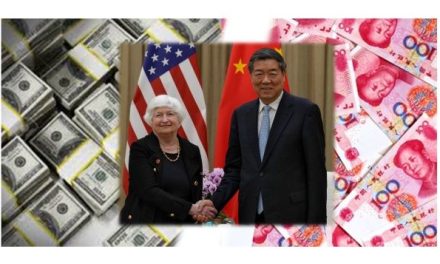BIIA Member Cedar Rose has provided this guest blog on Money Laundering: Money laundering is a serious crime that threatens every business.
Whenever criminal activity produces large sums of money, criminals must find ways to conceal that money by making it look legitimate. This process is known as money laundering – it is the collection, processing, and disguising of illegal funds, including various forms of assets, not just cash.
Businesses now must be more aware than ever as technology has made it easier for criminals to exploit loopholes to launder money. At Cedar Rose, because our goal is to protect our clients from suspicious companies and individuals involved in financial crimes, we have written this article with the aim of educating company directors and leaders on the harmful effects of money laundering and how to prevent it from affecting their business.
How does money laundering harm your business?
All over the world, criminals launder cash amounts estimated to be worth billions through financial institutions. A lack of cooperation between governments and authorities makes it easy for criminals to commit financial crimes without getting caught.
And even in cases where a group of countries abide by the same regulations, (eg; EU members and the 6th Anti Money Laundering Directive, 6 AMLD) each state has the power to interpret those regulations as they wish, including choosing the penalties and consequences in the case of noncompliance.
At a minimum, when there is an accusation of money laundering, the company’s top-management, including the CEO and C-level executives may face jail time and be forced to resign. The company’s reputation is likely to be damaged, which will affect current and future business partnerships and as a result, the company’s earning potential. While in the most severe cases of money laundering, the business may face bankruptcy or insolvency.
Below is a list of various types of transactions that make businesses vulnerable to money laundering:
- Purchasing and selling property belonging to business entities.
- Creating, operating, or managing trusts, companies, or foundations.
- Managing contributions used to create or operate a company.
- Overseeing the management of assets or money on behalf of clients.
- Opening and managing various accounts (current, savings, securities) on behalf of clients.
A more contemporary example of money laundering that takes advantage of modern online payment technologies is the following:
Money launderers can pre-arrange to use an online auction site to legitimise dirty money. It works by having one team member list an item online while someone else from the same organisation overpays for the product through PayPal.
Through this transaction, the two criminals can ‘wash’ the money by using a legitimate source (the online auction), and they get to split and keep the now ‘legitimate’ money.
Warning signs of money laundering
All industries are vulnerable to money laundering criminals. Regardless of your industry, criminals will still try to fool you into helping them to launder their dirty money.
However, this does not mean that there is nothing you can do to protect your business. Keep in mind the warning signs from below and if you believe that a transaction is suspicious, ensure that you report it to the appropriate authorities. The red flags to watch out for are as follows:
An odd transaction. For example, a stranger approaches your company to request something which is not within your usual capabilities or services.
Unwillingness to share or secretiveness, i.e. either they are reluctant to share anything about their business, or they provide limited information.
- The other party is insistent on only using cash or multiple payment formats.
- They involve a third party in the payment process.
- The purchase price is either extremely high (overvalued) or extremely cheap.
- The other company’s ownership or how they conduct their transactions suddenly changes.
Generally, a good rule of thumb is that if something sounds too good to be true, then this is usually the case.
How can you protect your business against money launderers?
In addition to paying attention to the warning signs from above, you can take the following steps to reduce the risk of getting involved in a laundering scheme:
- Ask Questions
Make sure that before you enter into a new business relationship, you ask more questions regarding the following: how much money and who will be involved in the transaction, the reason behind their interest, anything unclear from their financials, and the reasons behind cash payments.
- Follow Due Diligence Procedures
Authenticating the identity of your customers is one of the most effective ways you can avoid money launderers.
At Cedar Rose, we provide 18 different types of company due diligence reports that can help you verify the identity of a potential business partner. From our many due diligence products for companies, we recommend that you at least consider the following:
Customer Due Diligence Investigation on a Company: This report entails a lengthy in-depth research and open-source intelligence (OSINT) investigation into your business customer’s relationship network and media profile. We collect all the relevant data, including conducting intense global screening to ensure that you have a clear understanding of the system in which your customer operates.
Corporate Record Report: Our local investigative agents help our clients collect and obtain reports consisting of authenticated copies of corporate records even in the most difficult of countries such as the MENA region. Receive translated live data directly from the source on the same day.
Directorships & Shares Held by a Company: This report helps clients uncover the relationships between companies either through directorships or shareholdings. With this report, our clients can stay confident that the company they are trading with is not associated with any criminal groups that will put their business in danger.
-
Create a Formal Anti-Money Laundering Policy
Your AML policy should include instructions on how to interact or manage a new business relationship. These instructions may include the following: 1) Two randomly chosen senior members must review all sizeable transactions. 2) Contracts cannot surpass an X amount of cash, 3) Employees must follow particular checks and balance procedures and finally, 4) How to safely store all documents regarding financial transactions.
- Stay Educated
Ensure that you and your team stay updated on the latest money laundering schemes. Criminals use multiple methods to launder money, and they are continuously coming up with new techniques in an attempt to evade getting caught. The more educated you are, the easier will be to recognise and avoid them.
Cedar Rose Assists Companies to Protect Themselves Against Money Launderers
At Cedar Rose, we provide superior due diligence services that allow our clients to minimise their business risks, including getting involved with groups that launder money.
When you work with us you can expect:
Speed: Our database covers over 12 million companies, including information on shareholders and directors. This allows you to instantly access verified and accurate information on the company of interest.
 Reliability: We have over 20 years’ experience in investigative business intelligence so you can trust that we are a reliable partner for your business.
Reliability: We have over 20 years’ experience in investigative business intelligence so you can trust that we are a reliable partner for your business.
Accuracy: We are continually investing in the innovation and development of our talent and technology so that we can offer the most accurate data.
This report was recently posted on LinkedIn

























